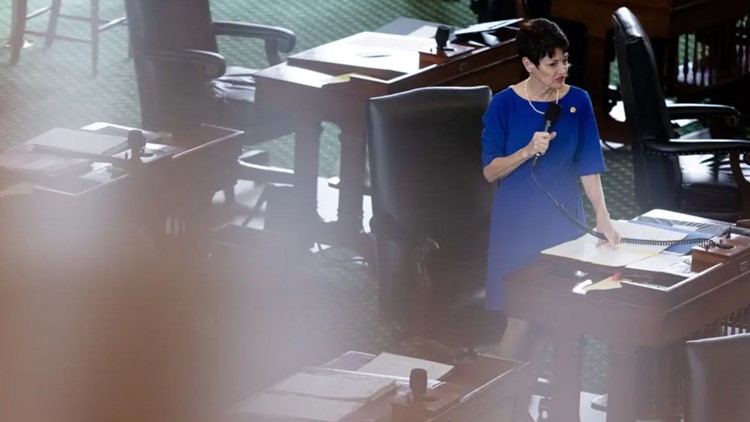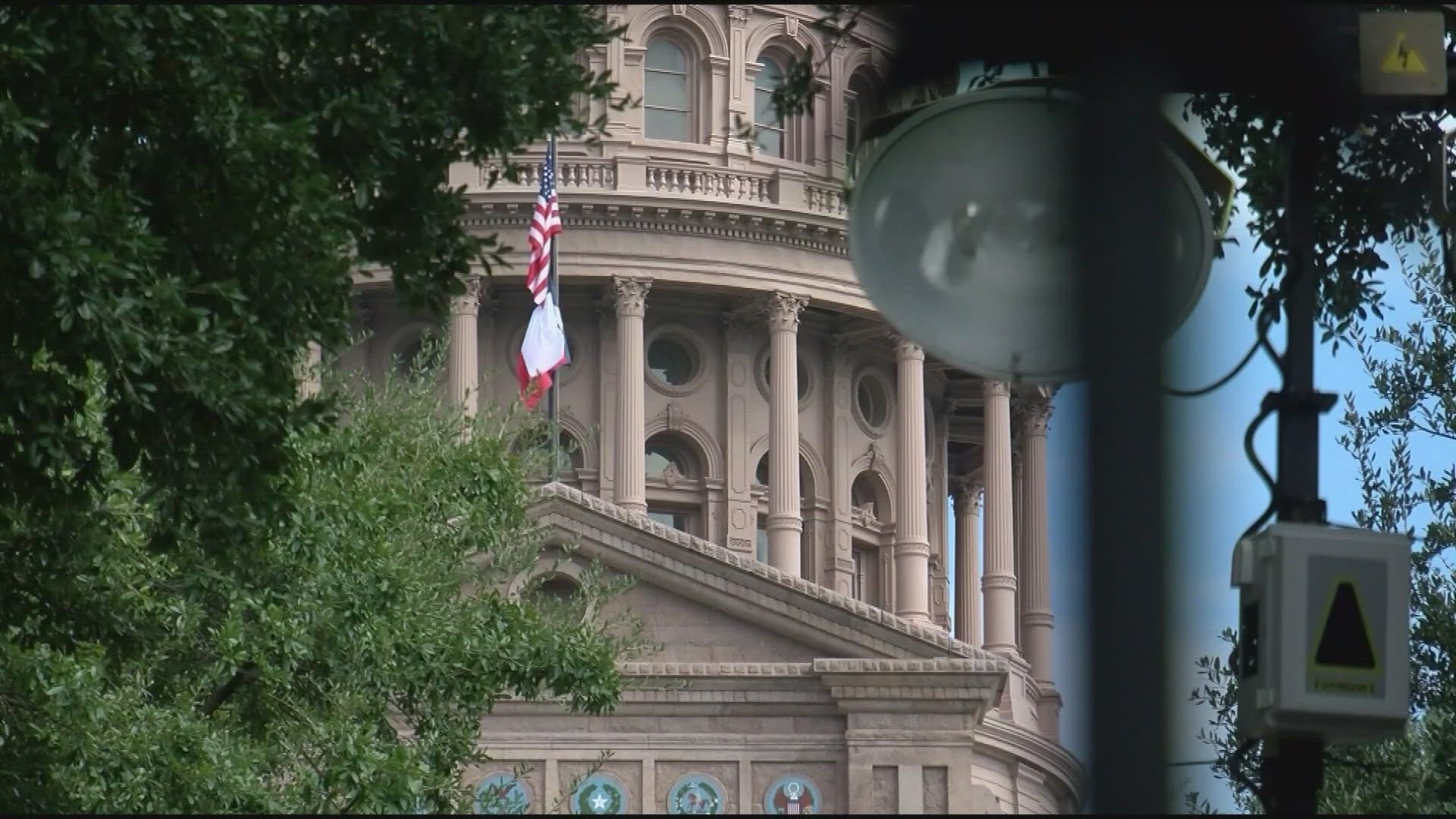TEXAS, USA — Republican Texas senators on Monday reversed themselves and voted against allowing transgender kids currently being treated with puberty blockers and hormone therapy to continue receiving such care.
That reversal essentially expanded Senate Bill 14’s proposed ban on transition-related care to include all transgender children — as outlined in the legislation’s original version. The chamber voted 19-11 along party lines to preliminarily approve the broader version of the bill, which is priority legislation for Lt. Gov. Dan Patrick.
Monday’s vote to expand the restrictions and advance the legislation came days after the GOP-controlled Senate agreed to allow kids already on puberty blockers and hormone therapy by early June to keep their access to those treatments. Major medical groups approve of such care and say it lessens higher rates of depression and suicide for trans youth.
Republican Sen. Donna Campbell of New Braunfels, SB 14’s author, said Monday that she wanted to remove the exceptions because they weren’t discussed in a committee hearing before reaching the full Senate.
“There were so many questions that have been brought up since the amendment was put on that out of respect for the body, we’re going to ask that it be taken down,” she said.
Campbell also successfully introduced an amendment to move the bill’s effective date from Dec. 1 to Sept. 1, 2023.
Sen. José Menéndez, D-San Antonio, pushed back against removing the exceptions, which would have allowed more transgender kids to receive care that many medical groups say is vital to their mental health. During committee debates for both SB 14 and its companion House bill, the Texas Medical Association has also called for lawmakers to allow trans youth who are already receiving transition-related medical treatments such as puberty blockers or hormone therapy to continue receiving them.
“There’s extensive data showing that hormone therapy withdrawal symptoms can be and are very real difficult to cope with,” Menéndez said. “I’m not sure after the hearing where we — Senator Campbell and I — sat through, why we would want to pull the rug out from under people.”
SB 14 requires another Senate vote before it can advance to the House.
Andrea Segovia, senior field and policy adviser for the Transgender Education Network of Texas, told The Texas Tribune that the Monday decision was disappointing. She’d seen the move to scale down the bill’s proposed restrictions last week as a sign that lawmakers were listening to the overwhelming public opposition to the legislation. But she said LGBTQ advocates will continue to fight in order to shut these efforts down in the lower chamber.
“A parent told me yesterday, ‘I just feel like I’m in constant whiplash from the state, like I’m constantly getting into a wreck with people who are trying to create laws for my kid — and I just feel so beat up physically and mentally,” Segovia said. “That’s what we’re doing to people.”
Campbell has previously painted doctors providing transition-related care as opportunists capitalizing on a “social contagion” with treatments that lack sufficient scientific data that could determine whether the care is safe and effective.
But in an hourslong Senate committee hearing about the bill, medical groups testified about the wealth of scientific evidence backing mental health benefits of transition-related care for transgender youth. Trans youth who take puberty blockers are significantly less likely to experience lifelong suicidal ideation than those who want the care and don’t get it, according to recent studies.
Over the objections of hundreds of doctors, medical groups and LGBTQ Texans, Republican lawmakers have said the legislation is needed to protect children and that medical studies don’t support the benefits of such care.
“This is not science-based practice,” Campbell said last week.
Campbell’s fellow Senate Republicans passed the exception for kids already receiving such care last week, but that move quickly came under fire from the Republican Party of Texas and its far-right leader, Matt Rinaldi.
“With this amendment, Texas is abandoning every child currently being abused,” Rinaldi tweeted.
Before Rinaldi weighed in, the House author of the proposal, Rep. Tom Oliverson, had defended the change in a March 30 statement. He said it was “factually inaccurate and misleading” to claim they had weakened the legislation.
Patrick Svitek contributed to this story.
The Texas Tribune is a nonprofit, nonpartisan media organization that informs Texans — and engages with them — about public policy, politics, government and statewide issues.
>MORE TEXAS POLITICS NEWS:



